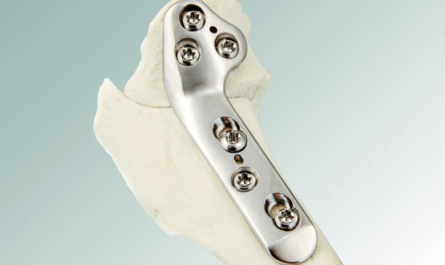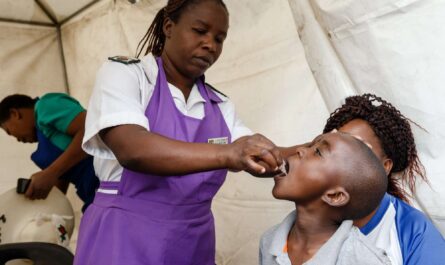Radio-frequency identification (RFID) is a technology that is fast becoming pervasive across various industries around the world. One such industry where RFID is making significant innovations is healthcare. From tracking medical equipment and supplies to monitoring patients, RFID is bringing about tremendous changes in how healthcare is delivered.
What is RFID?
An RFID system consists of RFID tags and readers. RFID tags are small microchips that can be attached to or embedded in objects including people. These tags carry identifying information that can be read by RFID readers through radio waves. RFID readers scan the radio frequency waves emitted by RFID tags to gather and transmit their data to other devices. This allows for automated identification and tracking of objects without needing direct line-of-sight or human interaction.
Tracking Medical Equipment and Supplies
One of the major uses of RFID in healthcare is tracking medical equipment and supplies throughout their lifecycle from manufacturing to distribution to use. RFID tags attached to equipment like wheelchairs, crutches, surgical instruments etc. allow hospitals to efficiently manage inventory, locate items quickly and prevent loss or theft. RFID also streamlines the replenishing of supplies by automatically triggering reordering when inventory drops below a certain threshold. This saves staff time spent on manual counting and locating equipment. RFID based tracking also improves asset utilization by identifying underused and expired equipment.
Patient Monitoring and Management
RFID tags are increasingly being used for monitoring and managing patients within hospitals. Tags attached to patient wristbands allow for automated updates to electronic health records on their location, treatment and test results. RFID readers at entry/exit points maintain real-time visibility of patient whereabouts to reduce wait times and prevent elopement. RFID bracelets also help match blood samples to patients automatically reducing the risk of errors. Implanted or wearable RFID tags for monitoring vital signs like pulse, temperature remotely allow for early detection of deteriorating health conditions. This enables timely intervention and improves healthcare outcomes.
Improving Workflow Efficiency
RFID enables an array of workflow automation capabilities across clinical and administrative processes. RFID enabled pharmacy cabinets ensure correct medications are dispensed to patients. Nurse staff is automatically alerted through their badges on newly generated tasks like new admissions or test results. Surgical staff can be tracked for hand hygiene compliance. Linen and medical waste are identified and segregated automatically reducing infection risks. Automated wayfinding through RFID tags embedded in floors guides staff to the right destinations quickly. This efficient utilization of resources drastically cuts turnaround times and improves staff productivity.
Privacy and Security Concerns
While RFID offers significant benefits to healthcare, there are valid concerns around privacy and security of patient data that come with this technology. Since RFID tags can potentially be read from a distance without consent, there are risks of privacy breaches, identity thefts, and misuse of personal medical information. Hospitals need robust systems and policies governing data access and retention, informed consent procedures, and encryption of communications to allay such concerns. Standardization of tag formats and establishment of regulatory guidelines for their secure use would go a long way in realizing RFID’s full benefits safely.
Enhancing Supply Chain Visibility
Another key application of RFID is enhancing supply chain visibility across the entire healthcare continuum from manufacturers to medical facilities. RFID tagged pallets and cases allow automated monitoring of shipments, real-time location tracking and environment monitoring for temperature sensitive items. This helps avoid stock-outs and waste from expired goods. RFID also enables traceability of recalled devices or medications back to the production batch in case of quality issues. Asset sharing networks use RFID to monitor medical equipment borrowing and returns between healthcare providers. With growing demands, RFID is poised to offer more supply chain agility, cost savings and compliance to healthcare organizations globally.
The Road Ahead
RFID has great potential to revolutionize various facets of healthcare delivery including record management, streamlined billing procedures, self-service check-ins by embedding tags in health insurance cards. While the technology promises transformative benefits, challenges around compatibility across vendor systems, high upfront costs and complexity of implementation remain obstacles to its widespread adoption. Regulations on RFID assisted care also need to evolve with new research on best practices. Nevertheless, with innovations lowering the costs and addressing such roadblocks, RFID deployment in healthcare is projected to significantly accelerate in the coming decade further enhancing patient care quality.
RFID enables ubiquitous computing capabilities across the healthcare value chain from streamlined inventory management and patient monitoring to optimized clinical workflows and enhanced supply chain visibility. While privacy and security concerns require addressing, its benefits undoubtedly outweigh the challenges. The future of RFID adoption in healthcare looks promising with the tech maturing to revolutionize how care is delivered for millions worldwide.
*Note:
1. Source: Coherent Market Insights, Public sources, Desk research
2. We have leveraged AI tools to mine information and compile it




